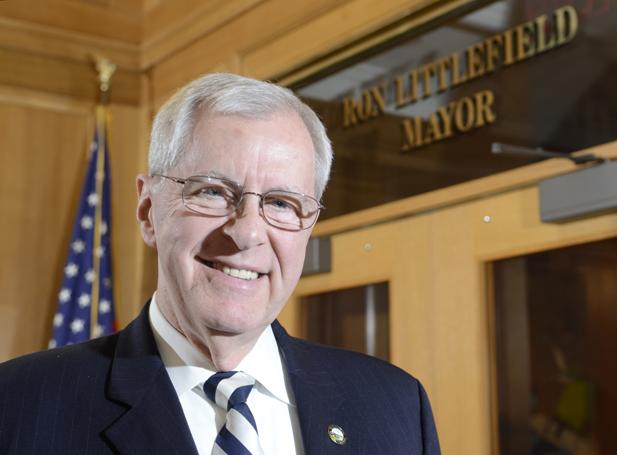NASHVILLE - As he leaves office Monday, Chattanooga Mayor Ron Littlefield faces a final defeat, his effort to persuade the state Legislature to toughen Tennessee's anti-gang laws.
The problem for Littlefield's Gang Free School Zone Act is its costs for housing gang members expected to go to state prisons under its effects.
By year 10, legislative analysts project it would cost $2.3 million annually to imprison an estimated 77 criminal gang members under the proposed law's three provisions.
In the Senate Budget Subcommittee on Wednesday, the bill's sponsor, Republican Sen. Todd Gardenhire, of Chattanooga, had an amendment that sought to provide funding for the bill in Gov. Bill Haslam's proposed annual spending plan. It failed for lack of a motion.
The official death knell for this legislative session is expected Monday afternoon when the bill is scheduled to come before the full Senate Finance Committee.
"They can still hear it, but basically I'm told they won't take action on it this year because of the fiscal note. If I can count correctly, if it wasn't for the fiscal note, it would pass," Gardenhire said of the bill which received an enthusiastic bipartisan thumbs up in the Judiciary Committee and its House counterpart.
Littlefield, who was term-limited and will be succeeded as mayor by Andy Berke when Berke is sworn into office around 10 a.m. Monday, said he was "certainly" disappointed but "not surprised" at what happened.
"We knew from the outset it was a long shot because anything with a significant fiscal note, which this one had, gets a lot of scrutiny," the mayor said. "We thought it might be stripped back rather than absolutely defeated.
"But," the mayor added, "these are issues that are not going away. And there's an expense of allowing crime to have its way. This was just one more step to reining in criminal activity that's affecting cities."
Hours after he leaves office, another Littlefield anti-gang bill is up for final action on the House floor after passing the Senate. It's a minor tweak of the state's Racketeer Influenced and Corrupt Organizations Act for gang members. Legislative analysts project a minimal cost.
Both bills were put together by Littlefield's gang task force coordinator, Boyd Patterson, a former assistant prosecutor.
On the Gang Free School Zone proposal, Patterson worked with an Austin Peay State University professor and scoured the country for laws in other states that Patterson said officials in states like Illinois, California, Florida, North Carolina and Texas recommended as most effective.
The bill represented the "best of the best" to use against the "worst of the worst," Patterson said earlier this year.
One provision would have made it a Class E felony (one to six years in jail) for any person actively participating in a criminal gang to promote, further or assist any criminal conduct by members of that gang.
Another bumped up jail time for any gang member committing a crime within 1,000 feet of a school. A third made it a Class D felony (2 to 12 years in jail) for a criminal gang member unlawfully possessing a firearm on any street, road, alley or sidewalk provided the person didn't have a state handgun-carry permit.
Rep. Vince Dean, R-East Ridge, a retired Chattanooga police lieutenant, sponsored the House bill.
Littlefield began his own anti-gang efforts following a Christmas Eve eruption of gang violence in 2011 that made national news. Nine teens were shot when rival gang members began firing at each other in a crowd of about 400 people leaving a downtown teen club with a history of violence.
Gardenhire said that while the bill is a dead issue this year, it's still alive to be dealt with in the second half of the 108th General Assembly in 2014.
"It's just on hold," he said.
This year, Senate and House judiciary panels approved a flood of anti-crime bills. But in the finance committees, lawmakers started worrying about the cumulative impact on the state's budget.
Since the mid-1980s when its then-overcrowded prisons erupted in violence and wound up under the control of a federal judge with massive expenditures to address problems, Tennessee government has sought to tread carefully on anti-crime bills.
Lawmakers and governors alike have tried to balance the public's desire for longer sentences with the state's ability to fund and operate new prisons in the midst of competing responsibilities and resistance to higher taxes.
"We would have put Tennessee further ahead of everyone else in dealing with gangs. But it was just too big a fiscal note. Dollars and cents is what it boiled down to," Gardenhire said.
Gardenhire hopes to persuade colleagues who praised the idea this year to find the money next year.
If that happens, both Littlefield and Patterson, whom Berke is not retaining, would have an after-office victory.
Contact staff writer Andy Sher at asher@timesfree press.com or 615-255-0550.

